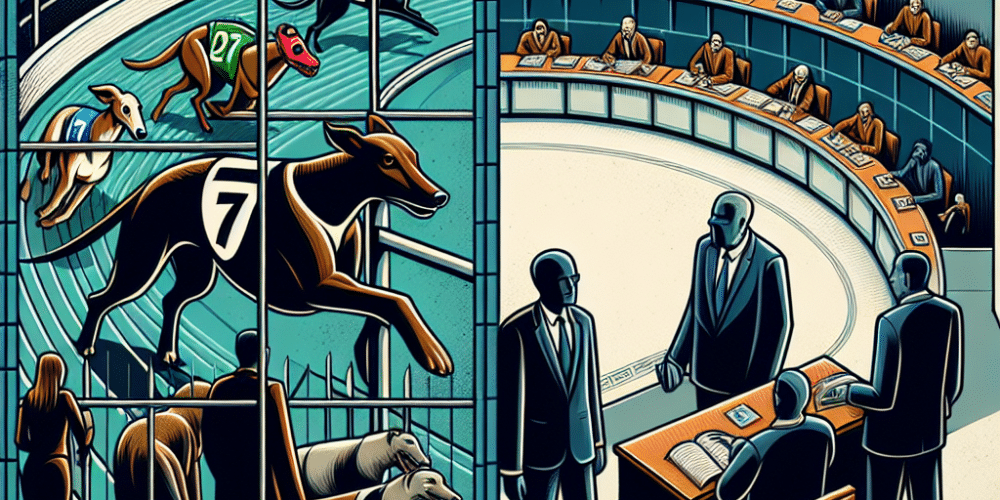On October 30, 2025, the UK government officially responded to a petition that called for an end to greyhound racing in the country, decisively rejecting the proposal. The Department for Environment, Food & Rural Affairs emphasized that the sport remains a significant economic contributor and is under stringent regulation, benefiting a wide array of stakeholders.
The “Ban Greyhound Racing” petition, which amassed considerable support, argued that the sport is responsible for the deaths of hundreds of dogs annually and inflicts injuries on many more. Supporters of the petition cited data revealing that between 2017 and 2023, around 1,230 dogs died during races, with an estimated 31,000 injuries occurring in the same period. They also expressed grave concerns regarding the pace at which greyhounds are bred and the conditions under which they are kept.
Adding fuel to the campaigners’ arguments, a 2019 documentary studied the industry and estimated that up to 6,000 dogs are put to sleep each year for failing to meet speed expectations. Campaigners urged the UK to emulate Wales, which has taken steps toward banning the sport entirely, reinforcing their belief that no animal should suffer for the sake of entertainment or sport.
In their official response, UK officials acknowledged these concerns but maintained their position, asserting that greyhound racing is a well-regulated activity that plays a vital role in the economy and in the lives of many individuals. The Greyhound Board of Great Britain (GBGB) has been actively working to improve the welfare conditions for racing dogs, the government pointed out. Notably, provisions have been put in place to ensure the welfare of the animals both on the track and in kennels.
Statistics unveiled by the government showed marked improvements in the sport’s safety record. In 2017, there were 1,013 dog fatalities, a number that has since dropped significantly to 386 in 2024. Similarly, the number of dogs euthanized due to racing injuries has plummeted from 333 in 2017 to just 3 in 2024. Such figures were highlighted as evidence of the industry’s commitment to enhancing animal welfare.
Further illustrating their efforts, the GBGB has introduced initiatives like the Greyhound Retirement Scheme, which aims to secure new homes for retired racing dogs. This program has been praised for preventing unnecessary euthanasia and ensuring a better quality of life for the animals post-racing.
The Department for Environment, Food & Rural Affairs also underscored the cultural and economic importance of greyhound racing, noting its status as the sixth most popular sport in Great Britain. The sector supports approximately 5,400 jobs and contributes significantly to the cultural landscape and rural economy, according to the department’s statement.
While the government has no immediate plans to ban greyhound racing, it has pledged to continue monitoring the industry’s progress and the GBGB’s efforts to further improve conditions for the dogs involved.
Despite the government’s firm stance, the debate over the ethics and future of greyhound racing continues to simmer. Advocates for animal welfare argue that the sport cannot be justified, given the risks and potential suffering it poses to the animals. They question whether economic benefits can truly outweigh the moral implications of continuing such a practice.
Conversely, proponents of the sport highlight the improvements already made and assert that responsible management and regulation can mitigate many of the concerns raised by critics. They argue that the sport’s long-standing tradition and its role in community life should not be overlooked.
In a related development, the international perspective on greyhound racing is also evolving. Across the Atlantic, a bipartisan bill is currently making its way through the United States Congress, aiming to ban the sport entirely. This legislative move signals a growing shift in attitudes towards greyhound racing, reflecting broader societal concerns about animal welfare in sporting contexts.
The UK government’s decision to uphold the practice, at least for now, illustrates the complex interplay between economic interests, cultural traditions, and evolving ethical standards. As the discourse continues both domestically and internationally, the future of greyhound racing remains a contentious issue, with passionate voices on both sides of the debate driving the conversation forward.

















